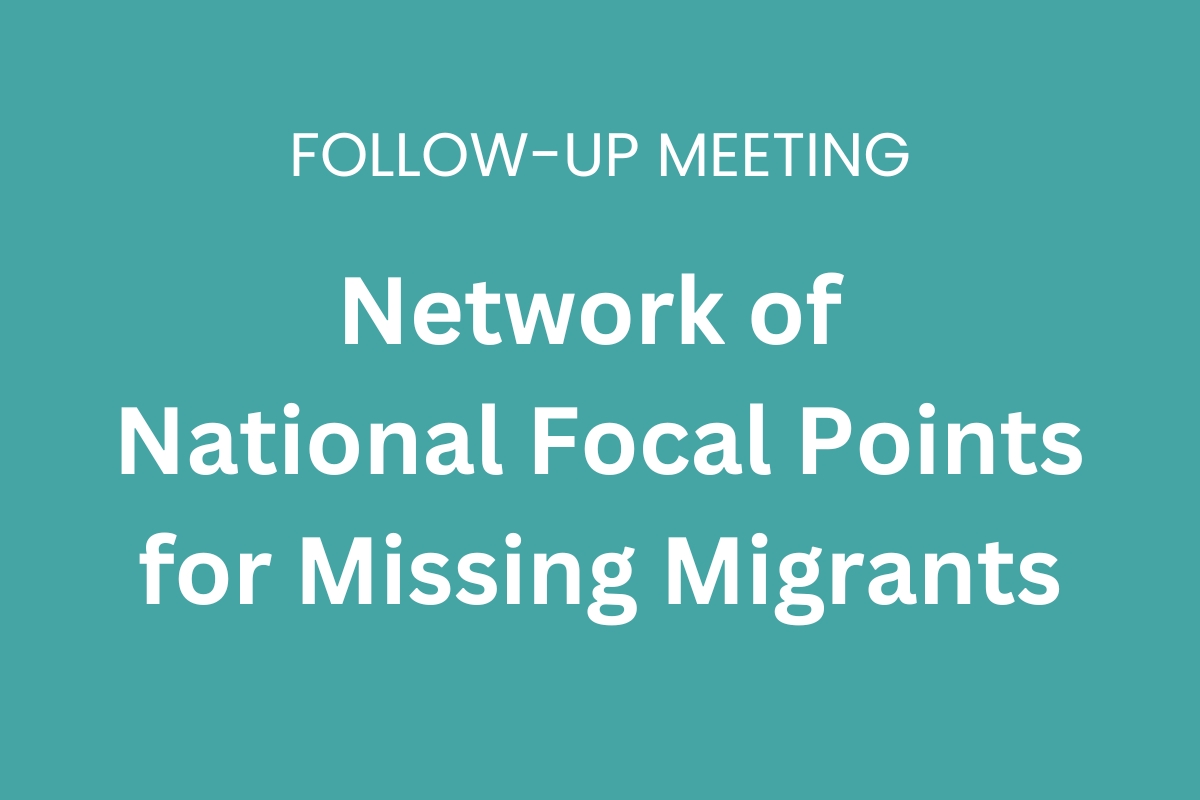On 27 March 2025, the third meeting of the Network of National Focal Points (NFPs) for Missing Migrants marked another key milestone in the international community’s efforts to improve cooperation on missing migrant cases. Organised by the International Committee of the Red Cross (ICRC) and co-convened by Switzerland and The Gambia with support from the Rabat Process Secretariat, this follow-up meeting brought together over 50 participants, including representatives from 27 partner countries of the Rabat Process and from relevant international organisations, including the UNHCR and the IOM, focusing on exchanging good practices and fostering collaboration between States and civil society organisations working on this critical issue.
As of March 2025, additional Dialogue partner countries have joined the Network to actively contribute to the discussions and foster international cooperation. The Network now includes 22 partner countries, with more countries expected to join in the near future.
Civil society efforts and recommendations
In a first session, Mr. Mahmoud Kaba from EuroMed Rights and Mr. Filippo Furri from the Institut Convergences Migration presented insights from their collaborative project on Mediterranean civil society engagement on missing migrants. Funded by Switzerland, the initiative seeks to promote the issue of missing migrants and the needs of their families within the political agenda in Europe and the Maghreb, while strengthening legal frameworks to uphold the human rights of asylum seekers, refugees, and migrants.
A series of recommendations were presented to States, including the development of clear and effective protocols for each stage for the identification and search processes for missing migrants, the creation of a coordination platform involving civil society organisations, families of missing migrants, international bodies, and State authorities, as well as the establishment of support mechanisms for affected families. Mr. Furri advocated for a “holistic forensic approach” involving different actors from countries of origin, transit, and destination. He presented a mapping initiative involving 50 civil society actors across the Mediterranean region to support information sharing. He also stressed the importance of connecting the formal and informal sectors to solve cases of missing migrants.
Forensic challenges and innovations: lessons from Latin America and beyond
Ms. Mercedes Salado-Puerto of the Argentinian Forensic Anthropology Team (EAAF) provided a compelling overview of challenges in identifying missing migrants and applying forensic methodologies. Drawing on the EAAF’s extensive experience in Latin America, she highlighted structural barriers such as fragmented data systems, limited reporting options for migrant disappearances, and the absence of a centralised information management system. She also showcased promising initiatives in The Gambia, Senegal, Tunisia, and Morocco, as well as a pioneering migrant identification protocol in Spain. Additionally, she introduced the EAAF Border project in Latin America, which successfully established a forensic coordination mechanism involving States and civil society actors providing invaluable support to and advocacy for families of missing migrants throughout the Americas.
Ms. Salado-Puerto concluded by emphasising the crucial role of NFPs in bridging institutional gaps and fostering collaboration between civil society, forensic authorities, and national institutions. She also pointed out that missing migrants, families, and civil society are already interconnected, and urged leveraging these existing links to drive progress.
Looking ahead: concrete actions and collaborative momentum
During the open discussion, participants highlighted concrete steps to address the challenges identified. These included drawing from Latin American examples to building effective national search mechanisms, establishing clear entry points for families to report disappearances, and leveraging existing civil society networks. Speakers also emphasised the need to ensure coordination between humanitarian search efforts and criminal prosecution.
The discussion concluded with a call to maintain momentum and build on the recommendations and tools shared at the meeting. The outcomes will contribute to the upcoming Thematic Meeting on missing migrants, scheduled for 9-10 July 2025 in Banjul, The Gambia. Co-chaired by The Gambia and Switzerland, with the technical support of the ICRC, this gathering will bring together representatives from the Rabat Process partner countries, along with the Network of NFPs for missing migrants, international organisations, and regional actors to explore innovative and collaborative solutions for identifying and supporting missing migrants and their families.






